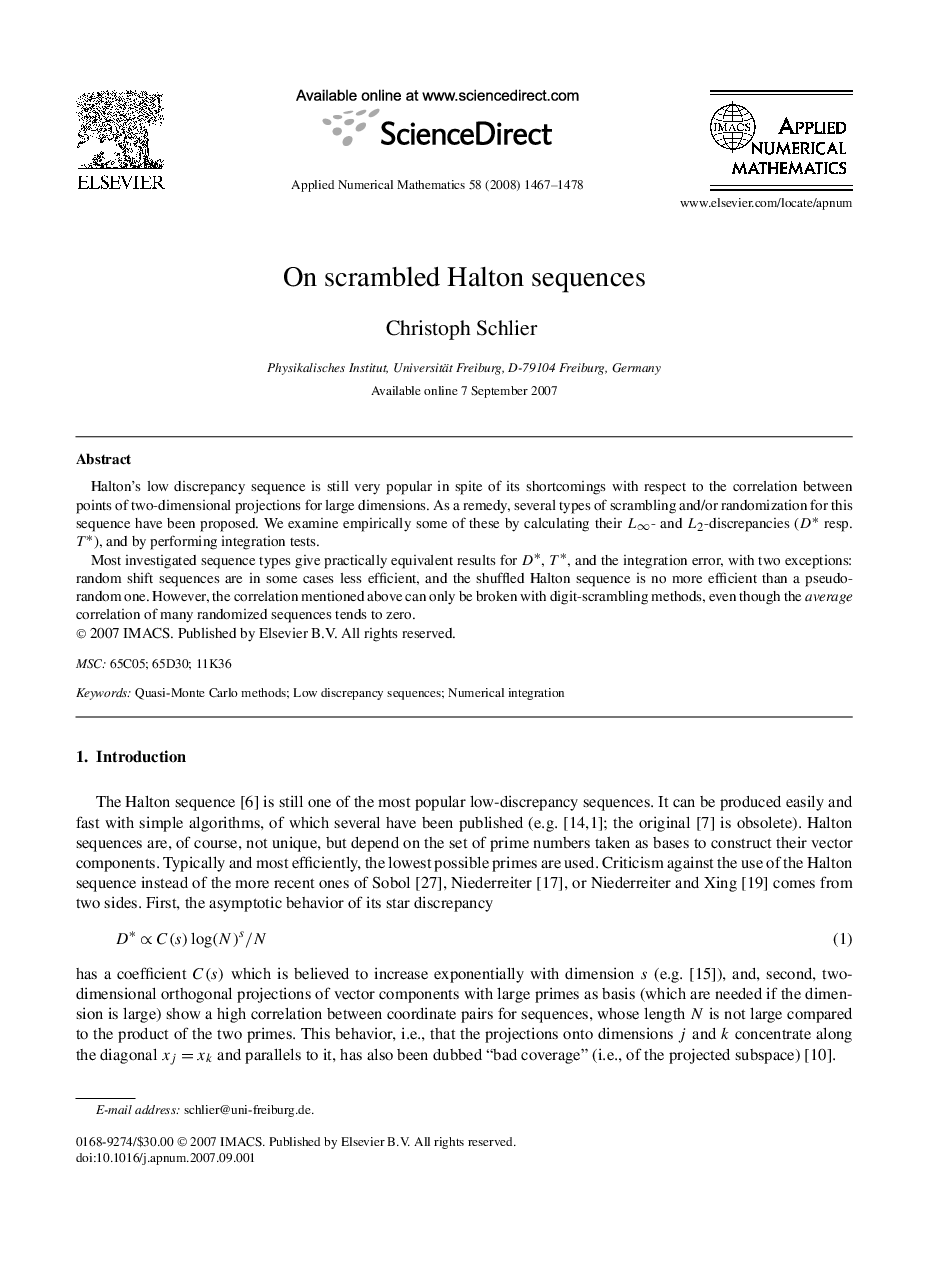| Article ID | Journal | Published Year | Pages | File Type |
|---|---|---|---|---|
| 4646004 | Applied Numerical Mathematics | 2008 | 12 Pages |
Halton's low discrepancy sequence is still very popular in spite of its shortcomings with respect to the correlation between points of two-dimensional projections for large dimensions. As a remedy, several types of scrambling and/or randomization for this sequence have been proposed. We examine empirically some of these by calculating their L∞- and L2-discrepancies (D∗ resp. T∗), and by performing integration tests.Most investigated sequence types give practically equivalent results for D∗, T∗, and the integration error, with two exceptions: random shift sequences are in some cases less efficient, and the shuffled Halton sequence is no more efficient than a pseudo-random one. However, the correlation mentioned above can only be broken with digit-scrambling methods, even though the average correlation of many randomized sequences tends to zero.
